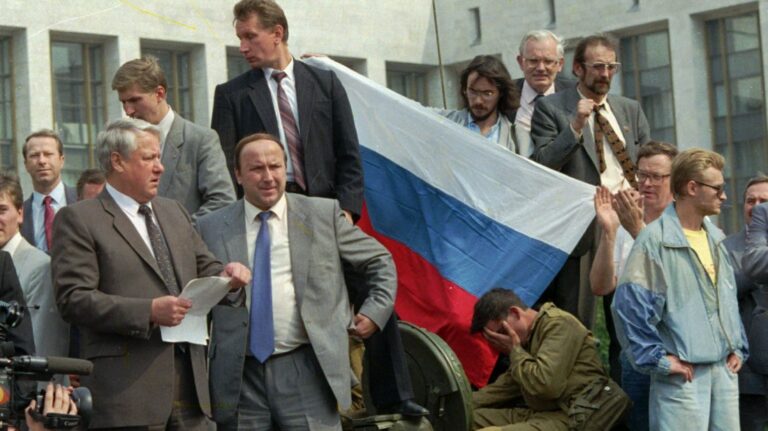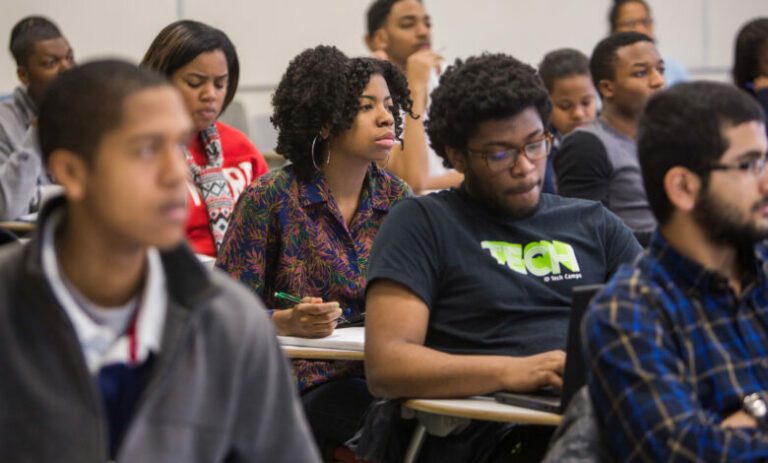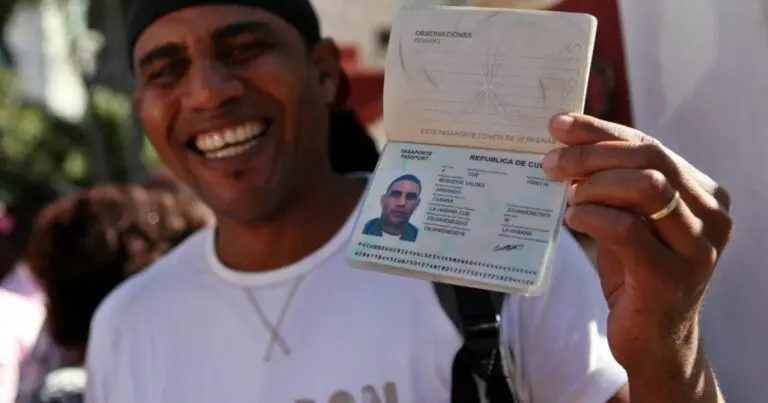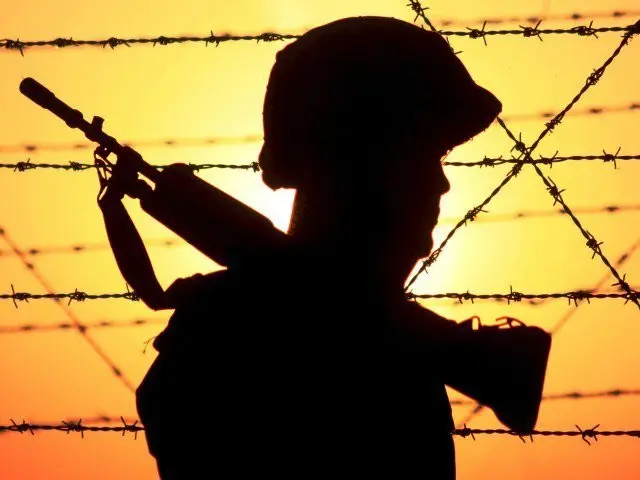Podcast: Play in new window | Download | Embed
Subscribe Apple Podcasts | Spotify | Android | iHeartRadio | Blubrry | Email | TuneIn | Deezer | RSS
Eva Bartlett talks about her experiences living in Gaza. This is an episode of Reality Asserts Itself, produced October 5, 2014, with Paul Jay.
STORY TRANSCRIPT
PAUL JAY, SENIOR EDITOR, TRNN: Welcome to Reality Asserts Itself on The Real News Network.
This is the beginning of a series of interviews with a Canadian journalist and activist who’s lived in Gaza for around three years. She’s back in Canada now. But how she got to Gaza and what life was like living there is the subject of our interview.
So now joining us in the studio is Eva Bartlett.
Thanks for joining us, Eva.
EVA BARTLETT, HUMAN RIGHTS ADVOCATE AND JOURNALIST: My pleasure.
JAY: So Eva, as I said, is an independent Canadian activist, a freelance journalist. She went to Gaza to live, starting in 2008, and lived there on and off for about three years since then. She volunteers with the International Solidarity Movement, a Palestinian-led group of international activists based in the Palestine occupied territories–or maybe now we should be calling it the state of Palestine. And she blogs at In Gaza.
So, before we get into life in Gaza, talk a little bit how you got there. You grew up in–you’re born in the U.S., but you grew up in Canada and in small towns and such. How do you get from there to Gaza?
BARTLETT: On a very circuitous route. I did quite a bit of traveling. I was living in South Korea. This was about five years after my university degree.
JAY: What took you to South Korea?
BARTLETT: Teaching English, paying off my debts. Many people were doing the same thing at the time. And it was a great way to travel and see more of the world, which I did. And it was through traveling that I started wanting to know more about the world and started looking at online programs. Democracy Now! was one of them. And at the time, I was looking at news every day, whereas before I had been completely disinterested and I had no reason to be interested in news.
And it was in 2005, and there was quite a bit of coverage of what was happening in Palestine. And because of that, because I basically knew absolutely nothing about Palestine, not even the name Palestine before then, and then suddenly was hit with a barrage of information which was very disturbing, it really affected me and made me want to learn more. And the more I learned, the more I wanted to become active in some way in justice for Palestine.
JAY: So before that, in terms of the house you grew up in, your childhood and such, any politics or not in terms of consciously?
BARTLETT: No. I mean, great family, very loving and humane and compassionate, but we didn’t discuss politics. And I think maybe that was one reason why I never really consciously looked for it. It just never occurred to me. My world was kind of absorbed in classical music, and both my parents were musicians. So, yeah, it was just–. Perhaps my brothers were more critical than I, but I certainly wasn’t.
JAY: And what was Israel on your horizon as you’re growing up and the official narrative?
BARTLETT: Didn’t know about it. Didn’t even know about the official narrative.
JAY: Not on your radar.
BARTLETT: Nope. I was a blank page. So that’s why I always say, when I talk with people, first of all, I wish I had known much earlier, but also I don’t feel it’s people who don’t know about Palestine or who are fuzzy about what’s going on there–it’s not necessarily their fault. I mean, it’s the way information is presented or not presented. So, again, because I did stumble across some non-corporate media news sites, I think that I was allowed to see some of the truth about Palestine.
JAY: But, you know, whether it’s Democracy Now! or some of the other alternative sites, there’s lots of different issues talked about. Why did that one–. And you’re in South Korea. Why does Palestine resonate with you?
BARTLETT: Well, some of the earlier videos I came across, so, on YouTube, were, for example, during the mid to late ’80s there was a campaign called the bone-breaking campaign, when Israeli soldiers would systematically take large boulders and just smash the bones–arms, legs–of Palestinians. And this was part of, I believe, the Israeli policy of quashing dissent. It was around the time of the first uprising, intifada. So seeing something like that when you came from a very sheltered background, it really affected me.
And as I learned more and more, I realized, okay, so not only is it an issue where there’s a people being oppressed and, as I learned more, people who have been expelled from their land; there’s a creeping genocide, an ethnic cleansing; but also learned about–I was born in the States, I grew up in Canada, and both my governments are complicit in the oppression of Palestinians.
JAY: So you’re in South Korea. And then what? This is 2005, you say.
BARTLETT: Yeah. So, at the same time, I was learning about Tibet, which was another kind of blank spot in my mind. And since I was already in Korea and it’s close enough to China, I took a ferry and a number of trains and buses and went and visited Tibet, and later did some English teaching with Tibetan refugees, got involved with the Tibetan movement for a little while, but at the same time was learning about Palestine. And this takes me to summer 2006, when Israel was bombing Lebanon and Gaza. And at that point, because now I’m consciously aware of Palestine, I was even more horrified and just made a decision that I wanted to go see Palestine and see for myself what life was like under occupation.
JAY: And that’s in 2008?
BARTLETT: That was in 2007. I went and via Jordan entered the West Bank, and then took nonviolence training with the International Solidarity Movement, and then for the next eight months was all around the West Bank, witnessing army incursions and lockdowns of towns and cities, which of course include, you know, shooting at or abducting any Palestinians who happen to be on the street if they are outside their homes when the army imposes a curfew, or seeing the violence at the hands of the colonists, the illegal colonist, or seeing the popular nonviolent demonstrations in places like Bil’in, which later grew to other areas around the West Bank. So I saw quite a bit in those eight months in the West Bank. And then, in 2008, I was able to go to Gaza.
JAY: So you enter Gaza through Egypt?
BARTLETT: No. Back then it was still under Mubarak’s rule. And so Rafah Crossing, which is the Egyptian crossing, at that time it officially was supposed to be open to Palestinians, but it was very difficult for any Palestinian to enter or to exit. And it was–as I understand, it was impossible for a non-Palestinian to enter via Rafah. They were meant to enter via Egypt with the Israeli people.
JAY: Before you go to Gaza, do you spend any time in Israel?
BARTLETT: When I was in the West Bank, I went to Tel Aviv, and it was mainly for visa purposes, because, of course, one of the–maybe not ironies, but one of the aspects of the Palestinian–the West Bank areas is that even though it’s supposedly for Palestinians, you still have to get Israeli permission to enter and to exit the West Bank. And that applies to everybody, of course. So I did meet a number of Israelis.
JAY: Although it’s not hard, it’s not hard just to drive into Ramallah. I mean, you stop at the check point and in you go.
BARTLETT: No, no.
JAY: If you’re not Israeli citizen and you’re not Palestinian.
BARTLETT: Right. Of course. But it’s–but even to enter Palestine in the first place is difficult, because Israel does control all the borders. So if you look like you might be a solidarity activist, it becomes very difficult for you to enter.
JAY: ‘Cause if–I mean, I was there a couple of years ago and we drove in fairly easily.
BARTLETT: Okay.
JAY: Yeah. But I guess we didn’t look like solidarity activists. I don’t know. What’s a solidarity activist look like?
BARTLETT: Well, they come in all shapes and forms and ages. So sometimes it’s maybe not so obvious. But, anyway, if it is obvious that you sympathize in any way with Palestinians, it is well reported and documented that more likely than not you’ll either not be able to enter in the first place or you’ll be granted a two-week visa or something.
So I did get to know, by the way, some Israeli activists who participated in the demonstrations in Bil’in, very good and, you know, compassionate and strong activists. And I met with a group that did kind of talks, going into Israeli Jewish communities and going into Palestinian communities and talking about the narrative between, you know, the Israeli army. It’s kind of like breaking the silence. But soldiers who had stopped participating in the army because they didn’t agree with the policies, and Palestinians who wanted to share their side of the story to Israeli communities. So I spent some time with them.
But primarily I had wanted to go there to witness the occupation, because it is a very brutal occupation. And I think that you need to see that if you’re going to go see Palestine. You can’t just avoid it.
JAY: Now, when you go to Gaza in 2008, do you go there planning to live? Or you’re just going to visit?
BARTLETT: Neither. I was not going to visit, per se, but also I didn’t have any idea when I would leave.
As it happened, well, first of all, I went by boat, because Gaza is under a siege or a blockade. Israel controls all the borders with the exception of Egypt, the Rafah Crossing. And Israel had pulled its settlers out of Gaza and said that it no longer controls Gaza. But nonetheless, freedom of movement is almost impossible. So the idea with the Free Gaza movement was that they would sail from Cyprus to Gaza because they would be sailing through international waters into Palestinian waters, thereby not entering Israeli territory. So that’s how I entered Gaza. After the fifth boat, the Israeli Navy started preventing any boats from reaching Gaza. So in that sense we were lucky to have even made it.
And, yeah, I didn’t have any idea how long I would stay, but as it turned out, the first time I went, I stayed for a year and a half, precisely because it is so difficult to enter and to leave.
JAY: And what did you do there?
BARTLETT: I again volunteered with the ISM. And our work there was of a different nature than it was in the West Bank. In Gaza–.
JAY: ISM–International Solidarity Movement.
BARTLETT: Right.
JAY: And how do you support yourself financially?
BARTLETT: In some cases, before I went to Palestine the first time I worked and saved money and did some fundraising. But then, when I was in Gaza, I was writing both just for the sake of sharing information and I was also being published in Inter Press Service. I was making–.
JAY: So it’s freelance journalism.
BARTLETT: Right. And, you know, you don’t need a whole lot to live in Gaza.
JAY: So not long after you arrived in Gaza in 2008, there is an Israeli attack. And you are there and live through it. What was it like?
BARTLETT: So it was the first time I’d experienced anything that intense. There were, I should note, bombings leading up to the attacks, and there was another sonic boom campaign, which–sonic booms sound like real bombs. So there was quite a lot of psychological terror already going on. But on December 27, the Israeli Air Force bombed throughout the Gaza Strip, targeting police stations, which inevitably also targeted civilians and schools and hospitals around. And then, until January 18, they were relentlessly bombing everywhere in the Gaza Strip. And there was no safe haven. So it’s a pretty phenomenal situation in that the population had no way of fleeing. You know in other situations where a population’s being aggressed that you have migration of people, right? But here they could not flee. They didn’t have bomb shelters. And in many cases they had no notice that their house was going to be bombed. Sometimes the Israelis would say, you have five minutes and get out, or they would do a double-tap kind of thing where they’d knock on the rooftop, they say, of the house or nearby and the family would flee, but in many cases they didn’t get this warning.
So we were volunteering with the Red Crescent. I was in the north of Gaza. And the reason we did this was both to witness the worst of the autrocities, including the use of chemical weapons and point-blank shootings, and the taking the testimonies of people who had endured these things, but also because the Israeli army was targeting medics. A couple of medics had already been killed by the time we joined volunteering with the Red Crescent. So, yeah, basically it was riding during the day, during the night, in ill-equipped ambulances that were trying to reach people and in many cases were being prevented by the Israeli army from reaching those who were calling for them.
JAY: You’re putting your own life in danger over and over here. This is risky, and people get killed doing these things.
BARTLETT: Right.
JAY: Why do you do that?
BARTLETT: Because I can, because they don’t have an option of leaving where they’re living. They don’t have an option of not being targeted. And I just think it’s important to stand in solidarity with them, and also to document what’s happening to them. They’ve been so largely ignored and their voice has been largely taken away from them. And there are, of course, articulate and talented and intelligent Palestinians that try to get their voices out, and through some alternative media can. But maybe if some Canadians see, you know, a Canadian in Gaza, then maybe they take it to heart more than if they just see some random person.
JAY: But don’t you make a decision where when you go out on a mission like this that you know you might not come back?
BARTLETT: Mhm.
JAY: And you’ve decided that you can deal with that?
BARTLETT: Yeah. I mean, that’s–I think many journalists or activists who go to areas where it’s high-risk have to make that decision, right, and it’s part of the nature of–either if it’s your work or what you believe in, a struggle that you believe in.
So in the case of the medics, one medic I was with was shot by an Israeli sniper in his leg during ceasefire hours that the Israelis had declared, and he was shot while wearing his medical uniform and obviously carrying the body of a man who’d been killed–no threat to the Israeli army. And he was pegged off.
Another medic that I worked with was killed by a dart bomb which was fired directly at his ambulance. And had I not gone back to Gaza City, I probably in that case would have been killed with him, because he was the medic I was accompanying. I went back to the city to write some reports, and in that absence he was struck with this dart bomb and shredded and went into shock and died.
JAY: But why is it your fight to have to potentially give your life for?
BARTLETT: It’s not–it’s all of our fights. We’re all–we all need to stand in solidarity with them, because the world powers–the Canadian prime minister, the U.S., Europe–they all stand with Israel regardless of what Israel does to the Palestinians. When Gaza was being bombed, my own prime minister had no qualms with Israel so-called defending itself by bombing the civilian population of Gaza. The U.S. sends billions of dollars to Israel to do–and weaponry to attack these people.
JAY: But this is a–that’s a political answer to what was essentially a personal question.
BARTLETT: Right.
JAY: One can think all of that, one can agitate at home against those policies, but to go there and potentially lose your life in the course of doing it, you’ve obviously had to reflect on this.
BARTLETT: When you go there and you see the atrocities that Palestinians have to endure and yet you’re met with such love by them and such generosity and friendship, it’s like they become your family. I mean, it would be like–I guess the closest parallel I could think of is, if your own family were being bombed and attacked, would you turn your back and say, no, I’m not going to risk my life for them? Or would you go and do what you could to save them or tell their story? And I think most people would defend their family, defend, would stand with their family.
And really, I mean, I’m not the only person that does this and that has felt this way. Most people that I know that have gone to various parts of Palestine, once they see it they don’t turn their backs. And it’s also that whole expression, like, first they came for–I don’t remember how it goes, but inevitably–and I don’t think this way, I don’t think I’m going to stand with them because then they might later come back for me; I feel like I take it more from a humanistic perspective that it’s an obligation.
JAY: But this is part of what gives your life meaning.
BARTLETT: Yes. Yes.
JAY: Alright. Thanks for joining us.
BARTLETT: You’re welcome.
JAY: And thank you for joining us, and please join us for the next segment of our interview on The Real News Network.






